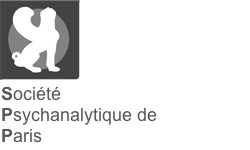|
Résumé :
|
The clinical case describes a severe ambiguous personality, characterised by the propensity to combine indiscriminate identifications in the Ego in order to make an identity “sui generis,” where contradictions coexist consciously without generating conflicts. The antinomies are accepted in the conscious area of the Ego and they make the best ground for a bad faith that is lived in complete good faith. The subject defends himself against the possibility of losing the ambiguous nucleus that constitutes the foundation of his identity and omnipotence. For this purpose, he mobilises depressive and paranoic pseudo-symptomatology. The ambiguity allows him to never face the aftermath of disastrous existential choices, envy or avidity, the weight of responsibility or guilt. The therapy, on the one hand, commits the patient to recognise ambiguity and to discriminate contradictions and, on the other hand, commits the analyst to recognise the possible appearance of her ambiguous core or its derivates. The study of ambiguity’s psychogenesis in the end is used as an observational peak of the totalitarian ideology where the elusion of the judgement skills facilitates the self-deception and risks eradicating from the individual species-specific characteristics, dehumanising the subject himself and others.
|





